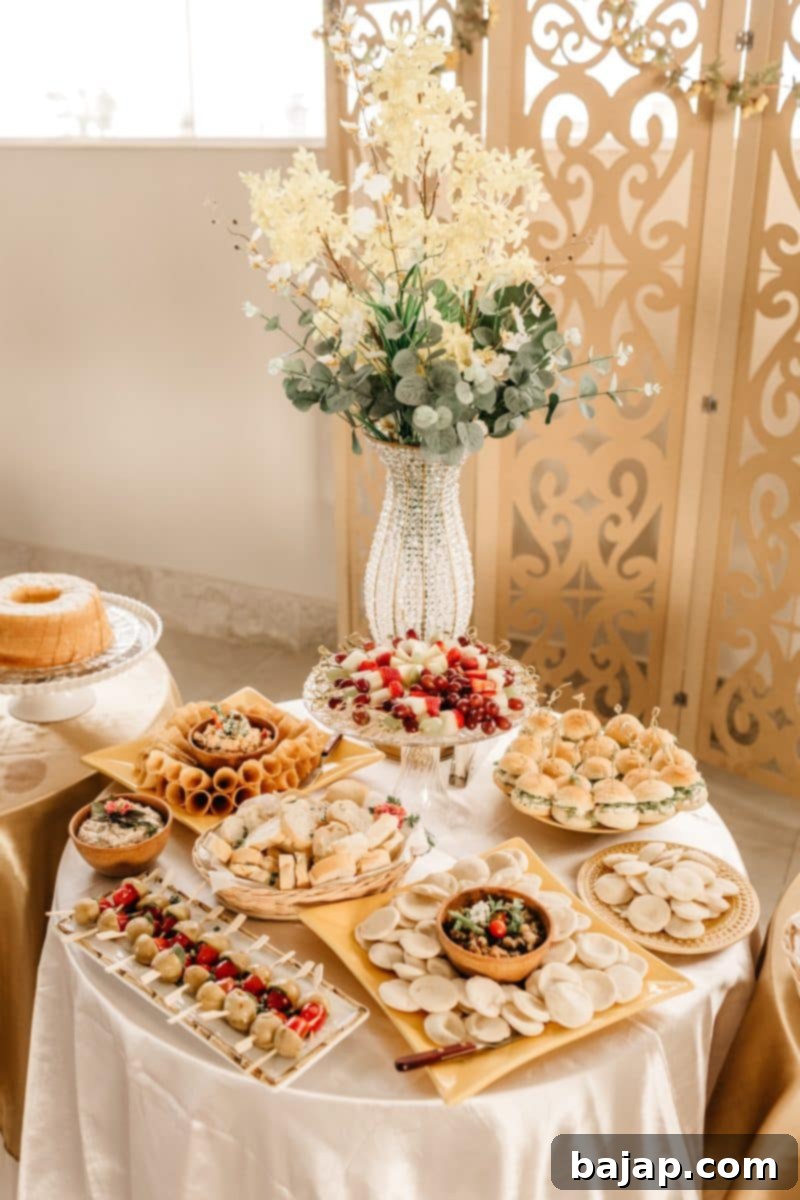Mastering the Art of Hospitality: Create Unforgettable Events & Guest Experiences
Hospitality is more than just a service; it’s an art form, a philosophy, and a profound way of connecting with others. At its core, it involves crafting an environment of warmth, comfort, and genuine welcome for every guest and visitor. True mastery lies in understanding how to transform a simple gathering into a special, unforgettable experience, ensuring every individual feels valued and cherished. From the smallest thoughtful gesture to the grandest event, exceptional hospitality builds lasting memories and fosters strong connections.

Whether you’re hosting an intimate dinner party, a large corporate event, or welcoming guests into your home, the principles of hospitality remain constant. It’s a skill set that blends graciousness, consideration, and a genuine desire to make others feel at ease. With the right approach and a few key strategies, anyone can learn to perfect this invaluable art.
1. Establish an Inviting Atmosphere
The foundation of any successful event or welcoming space is a truly inviting atmosphere. This goes beyond mere aesthetics; it’s about engaging all senses to create a comfortable and appealing environment. Begin with visual elements: consider the lighting, which can range from soft, ambient glows to vibrant, celebratory illuminations. Simple yet elegant decorations, such as fresh bouquets of flowers, flickering candles, or tastefully chosen artwork, can instantly elevate a space and make it feel more personal and warm.
Comfort is paramount. Ensure there are ample and comfortable seating arrangements that encourage conversation and relaxation. Think about the flow of the room, allowing guests to move freely and interact. Provide essential amenities, such as easily accessible drinks for guests upon arrival, and perhaps a selection of light snacks to tide them over. The auditory experience also plays a crucial role; thoughtfully selected background music can set the mood without overpowering conversations. Finally, don’t underestimate the power of scent – a subtle, pleasant aroma can make a space feel more luxurious and welcoming. Beyond the physical setup, ensure sufficient, well-trained staff (if applicable) are present to proactively attend to guests’ needs, providing seamless and attentive service throughout the event.
2. Meticulous Preparation and Planning
Flawless execution of any hospitality event hinges on meticulous preparation and comprehensive planning. This stage is where you anticipate every detail and potential scenario, ensuring a smooth and stress-free experience for both hosts and guests. Start with a detailed checklist that covers everything from venue setup and cleanliness to ensuring all necessary equipment and amenities are in place. Confirm adequate seating arrangements that match your guest count and event style.
Crucially, develop robust contingency plans. No matter how well-organized, unforeseen issues can arise. What if a key piece of equipment fails? What if a guest experiences a medical emergency or requires special assistance? Having a clear, pre-defined plan for these situations ensures prompt and effective responses, minimizing disruption and demonstrating your commitment to guest well-being. This includes briefing staff on their roles in emergency situations, outlining communication protocols, and having backup resources readily available. Thorough preparation also involves confirming all vendor details, managing guest lists, and considering any specific requests or dietary needs well in advance, leaving no stone unturned in the pursuit of perfection.
3. The Art of Home-Cooked Meals and Snacks
For many, the promise of wonderful food is central to the hospitality experience. Offering home-cooked meals and snacks is a deeply personal gesture that communicates care, effort, and a desire to truly nourish your guests. It allows you to control the quality of ingredients, customize flavors, and cater to specific preferences or dietary restrictions, making each dish a reflection of your thoughtfulness.
Consider a diverse menu that caters to different tastes. For delightful snacks, explore options like light, fluffy homemade brioche buns, flaky savory pastries, or artisanal cheese boards. When planning a larger meal, classic comforting dishes such as roasted vegetables bursting with flavor, succulent slow-cooked meats, or creamy, perfectly executed risotto can form the heart of your menu. For a sweet ending, an array of homemade cookies, delicate cupcakes, or a rustic fruit tart can leave a lasting impression. Beyond the taste, remember that presentation is absolutely everything. Beautiful plating, elegant serving dishes, and a well-arranged buffet or table setting enhance the dining experience immensely. Take into account any allergies or dietary requirements of your guests and offer clearly labeled alternatives to ensure everyone can enjoy the meal safely and comfortably. This attention to detail transforms a simple meal into a memorable culinary journey.

4. Craft Memorable Experiences
At the heart of every truly memorable event lies the deliberate crafting of unique experiences. It’s about going beyond the basic provisions and actively designing moments that resonate with your guests. To achieve this, pay careful attention to the type of atmosphere and activities you’re providing. Engaging entertainment can be a powerful tool; incorporating fun games or interactive entertainment helps to break down social barriers, encourages interaction among attendees, and makes their overall experience more enjoyable and comfortable. This could be anything from live music and performers to engaging workshops, photo booths, or even thematic trivia.
Consider developing a cohesive theme for your event. A well-executed theme can unify decor, food, activities, and even dress codes, creating a truly immersive experience. If it’s a brand-related event, ensure that the theme and decor subtly reflect your brand message and values, leaving a consistent and lasting impression. Personalization also plays a significant role; small touches that acknowledge individual guests or shared interests can elevate an experience from good to exceptional. The goal is to create “wow” moments that guests will talk about long after the event concludes, fostering a sense of delight and unique engagement.
5. Anticipating Problems and Finding Solutions
Even with the most meticulous planning, the unexpected can and often does occur. The hallmark of a truly masterful host is not the absence of problems, but the ability to anticipate them and react with grace and efficiency. Proactive problem-solving is key to keeping stress at bay and ensuring guest satisfaction. Start by conducting a thorough risk assessment during your planning phase, identifying potential issues ranging from technical glitches and vendor delays to guest discomfort or unforeseen weather changes.
Develop clear, actionable backup plans for each identified risk. This might involve having alternative venues, backup equipment, or emergency contact lists readily available. Crucially, empower your team (if you have one) to handle inquiries and address concerns promptly and effectively. Provide them with the training and autonomy to resolve minor issues on the spot, preventing small problems from escalating. Clear communication with guests, should a significant issue arise, is also vital – transparency and a calm, reassuring demeanor can turn a potentially negative situation into an opportunity to demonstrate exceptional customer service. Having comprehensive contingency plans in place provides invaluable peace of mind, allowing you to focus on the guests rather than being blindsided by unforeseen obstacles.
6. Utilizing Technology to Elevate the Experience
In today’s interconnected world, technology offers a wealth of opportunities to enhance hospitality and convenience for your guests. Integrating thoughtful tech solutions can streamline processes and add innovative elements, making the entire experience smoother and more engaging. Consider implementing contactless check-in systems to expedite arrivals and provide a modern, efficient first impression. Online forms and surveys can gather valuable feedback, preferences, or even pre-order requests, allowing for a more personalized experience.
During the event, interactive displays or virtual reality experiences can add a fun, immersive element, creating unique talking points and engagement opportunities. Event-specific apps can provide schedules, maps, speaker information, and even facilitate real-time networking among attendees. Furthermore, simple technological conveniences like ample charging stations for mobile devices, or readily available Wi-Fi, can significantly improve guest comfort. The strategic use of technology isn’t about replacing human interaction but rather complementing it, making certain aspects of the event more accessible, efficient, and memorable, allowing hosts to focus more on personal engagement.
7. Demonstrating Gratitude for Every Guest
At the very heart of exceptional hospitality lies genuine gratitude. Remembering why you are hosting your event – to connect, to celebrate, to inform, or to simply share – underscores the importance of showing appreciation to every individual who attends. Demonstrating appreciation can take many thoughtful forms, extending beyond mere politeness.
Consider offering small, thoughtful gifts or favors as guests depart, a tangible token of thanks for their presence. Following up with personalized thank-you cards or emails can also make a significant impact, allowing you to reiterate your appreciation and perhaps mention a specific interaction you enjoyed. Most importantly, personally thanking attendees as they leave, making eye contact, and expressing sincere gratitude for their attendance can make guests feel deeply valued and appreciated. These gestures, whether grand or subtle, reinforce the positive experience and help foster a lasting connection, turning a one-time attendee into a loyal friend or patron. True gratitude transforms a transaction into a relationship.
8. Perfecting Hospitality Through Practice and Reflection
Hospitality, like any refined skill, is an art that demands patience, meticulous organization, and the invaluable ability to think on your feet. It’s not a static checklist but a dynamic, continuous learning process. Just like mastering a musical instrument or a new language, perfecting the practice of hospitality takes dedicated time and consistent effort. Embrace each event, whether a grand celebration or a quiet gathering, as an opportunity for growth.
After each event, take the time to reflect thoroughly. What aspects went exceptionally well? What were the highlights that guests raved about? Equally important, identify areas for improvement. Where were the bottlenecks, the moments of discomfort, or the overlooked details? Collecting feedback, both formal through surveys and informal through casual conversations, is crucial for this reflection. Additionally, seeking external knowledge can be immensely helpful; attending other related events as a guest can offer fresh perspectives, or taking specialized courses in event management or customer service can equip you with best practices and innovative strategies. The ongoing cycle of practice, reflection, and learning is what truly hones your ability to create increasingly exceptional and unforgettable guest experiences, making you a master of the art of hospitality.
At its core, providing outstanding hospitality for your guests involves creating an environment where every individual feels genuinely welcomed, valued, and appreciated. By diligently following these strategies and embracing a guest-centric mindset, you will not only ensure a memorable event but also leave a lasting, positive impression on all who attend. With careful planning, thorough preparation, and unwavering dedication, hospitality transcends a simple service; it becomes an art form that transforms any occasion into an truly unforgettable experience.
